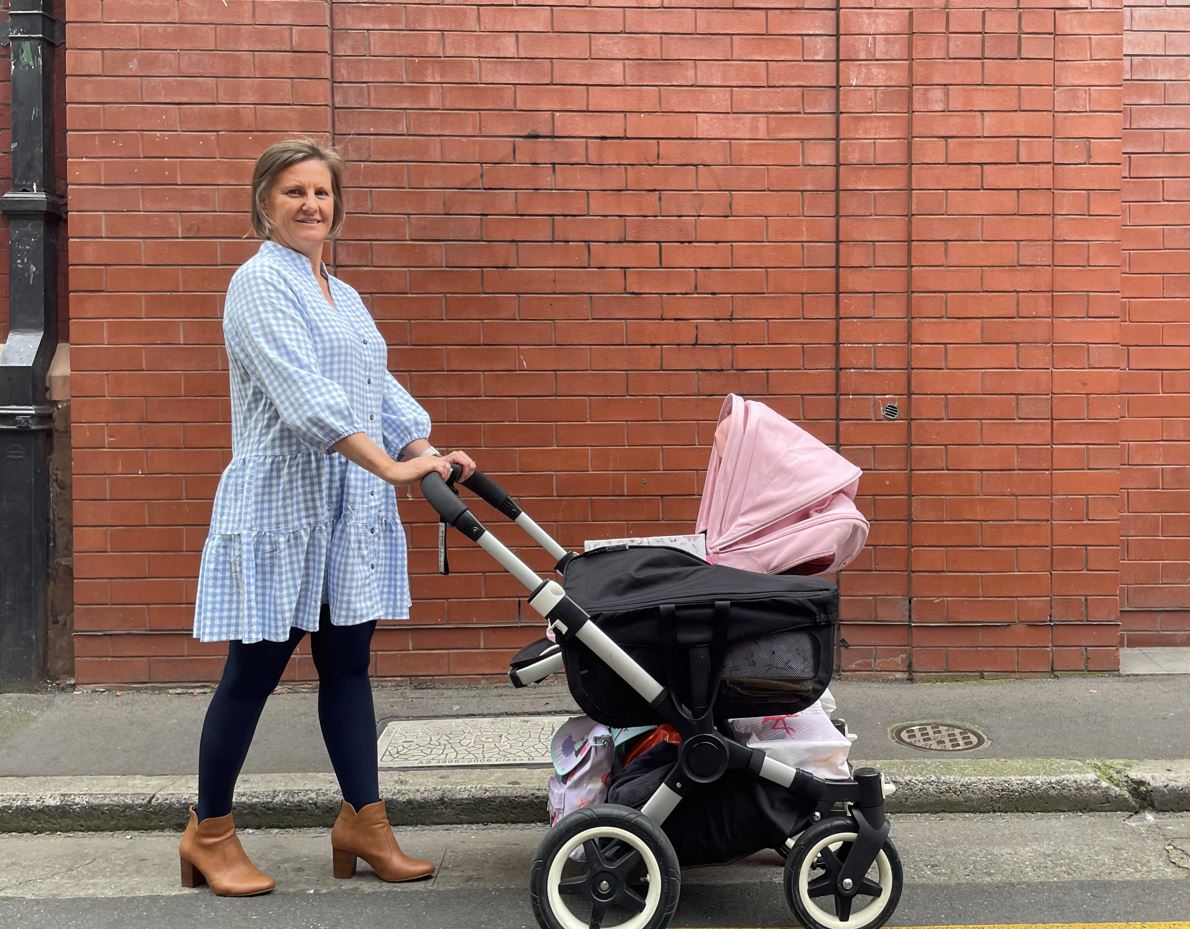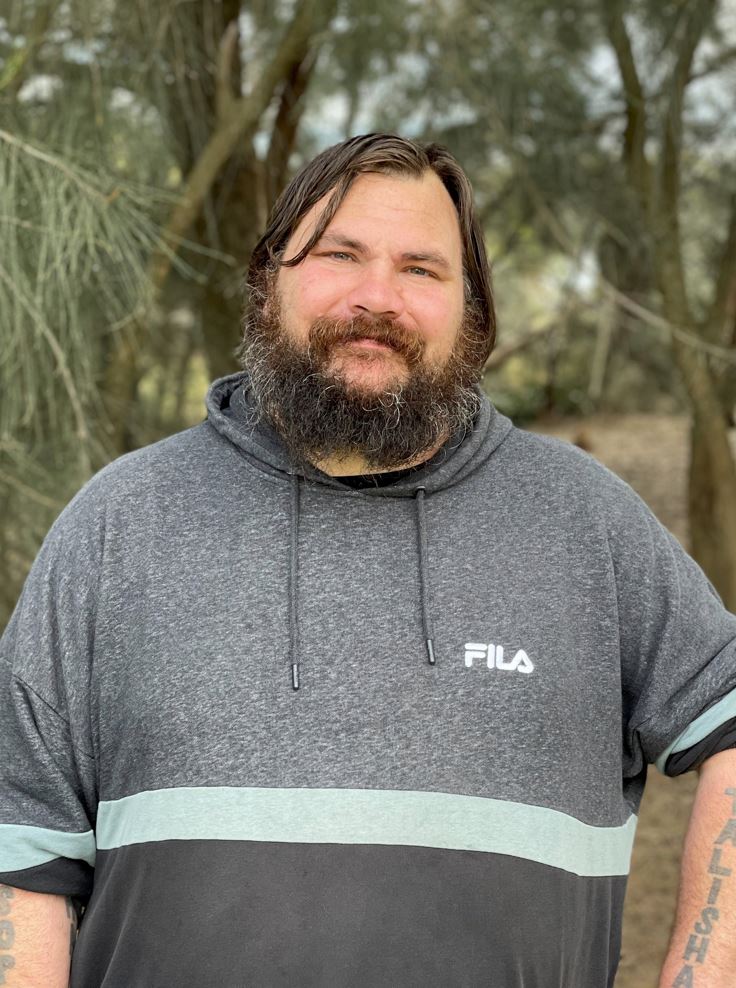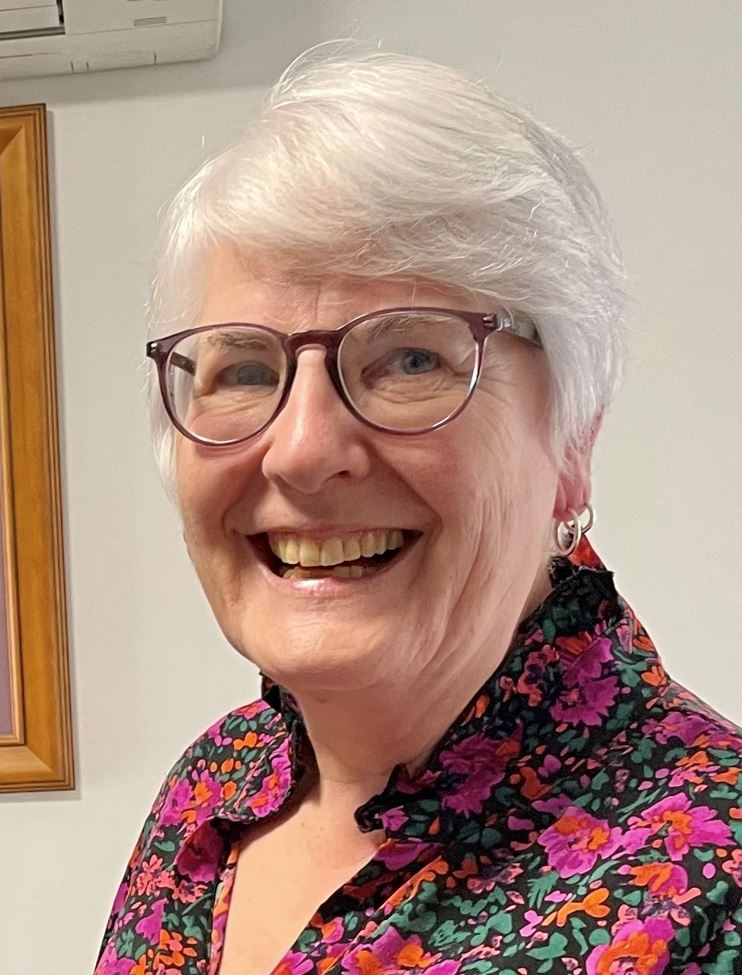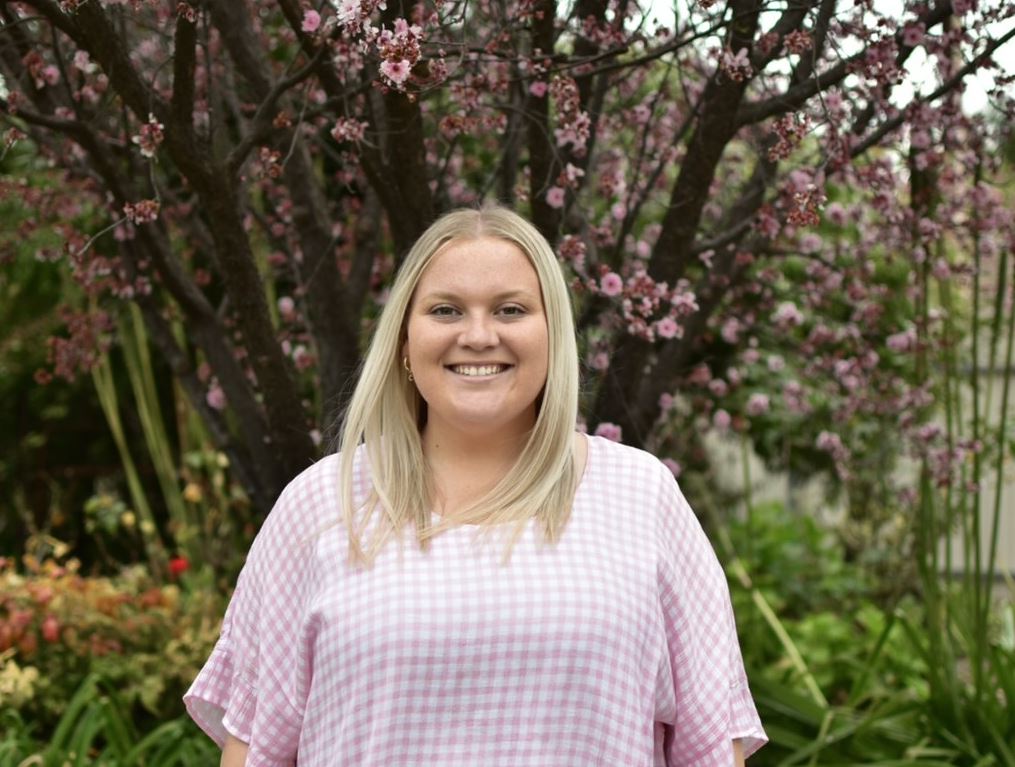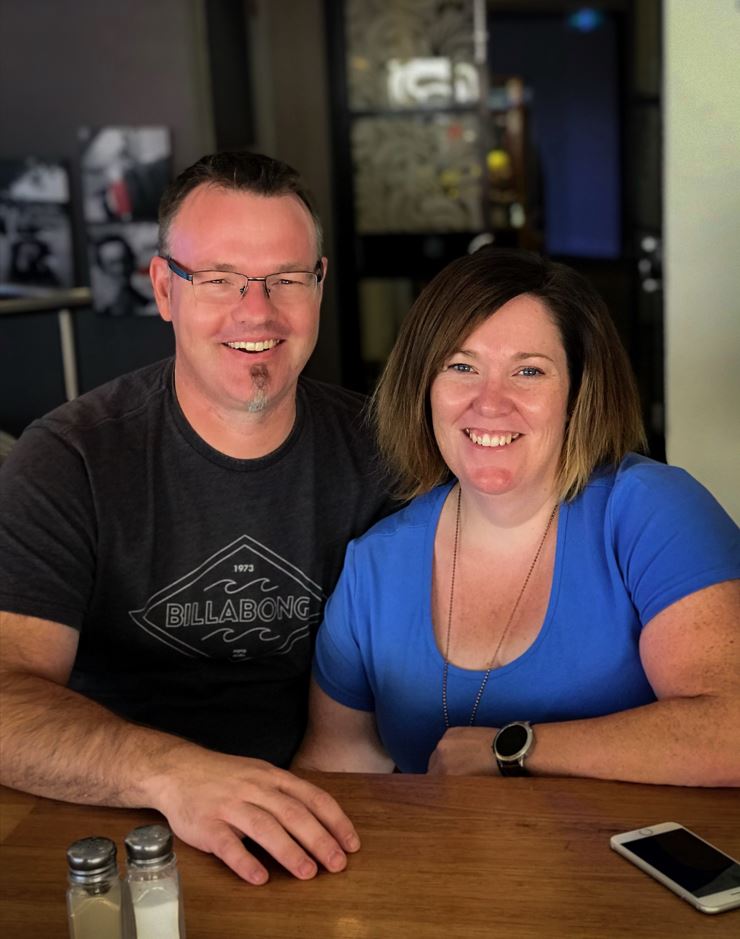From Peterborough to Port Pirie and from Mannum to the Murraylands, we caught up with carers across South Australia to share their stories as part of Foster and Kinship Carer Week (September 10-16).
FOSTER CARE 'COMPLETES FAMILY'
Sophie and Tyson James say people often remark at how fortunate the toddler they care for is to have found a loving home – but they think they’re the lucky ones.
The Whyalla couple have cared for *Jasmine since she was about 10 days old.
“Everyone’s very quick to say she’s so lucky… but we’re lucky,” Sophie said. She’s just such a light and she’s changed our lives for absolutely the better, and I actually couldn’t imagine our life without her.”
Sophie and Tyson are sharing their story as part of Foster and Kinship Carer Week (10-16 September), which recognises the vital role kinship and foster carers play in child protection.
There are about 1720 kinship care families and 1010 foster care families with a placement throughout South Australia and there continues to be a need for more placements to be available.
Sophie and Tyson also have a six-year-old biological daughter, and decided to become foster carers after learning about the level of need among vulnerable families through Sophie’s work as a school teacher.
Sophie said their daughter was at the centre of the couple’s decision-making when they were considering opening their home to another child through foster care agency Centacare Catholic Country.
“We told her that we had the ability to help a child in need, and she just loves it,” she said.
Sophie said Jasmine had helped complete the family.
“Our daughter now has a sibling that she can grow up with,” she said. “And we like to think that it’s helped (Jasmine’s) life as well.”
Sophie said while there were challenging aspects to raising a child in care, she and Tyson found plenty of support available through the Department for Child Protection, Centacare and among the foster carer community in Whyalla.
Rachael Ellis, Regional Manager for Centacare in Whyalla, said helping carers to support the children they have chosen to foster is an important part of its work in the Whyalla community.
“We’re local, we know our community, and that can make a real difference in being able to provide what our carers need to assist in their fostering journey,” she said.
Sophie encouraged others who had considered fostering to make the next step and enquire.
“These kids are amazing and deserving of love and care. It’s not a big dark, scary thing. It can be so beautiful and rewarding and just life changing for everyone involved,” Sophie said.
For more information on foster care, call 1300 2 FOSTER (1300 2 367 837) or visit www.fostercare.sa.gov.au
*a pseudonym has been used for privacy reasons
FOUR DECADES OF CARING FOR CHILDREN
Maxine Bowden just wanted to give back to other families in need – and now she’s helped hundreds of them.
The Port Pirie woman, 75, has been fostering children for more than 40 years in short and long-term arrangements, all stemming back to her own experiences as a 19-year-old woman.
During the mid-1960s, Maxine had not long been in a relationship when she gave birth to her first daughter, who was adopted by another family.
“My biggest driver was that there was a beautiful couple in this world that adopted my daughter when I couldn’t be there for her,” Maxine said.
“I wanted to give back because someone was there when I needed them.”
Maxine and her husband Steve are supported by foster care agency Uniting Country SA.
They were also winners in the South Australian Foster Carer of the Year category of the 2023 SA Child Protection Awards, which recognise the outstanding achievements of people and organisations from across the sector.
Maxine reconnected with her daughter 30 years ago, and also has two other adult children, 14 grandchildren and 16 great grandchildren.
But she estimates she has cared for about 300 as a foster carer – many in respite or short-term placements and others in longer term arrangements, such as 17-year-old Jack*, currently living with Maxine and husband Steve.
“Our job really is to be there to try and get that child back with their family, or if that’s not possible, to keep them in a safe placement,” she says.
Maxine says although she and Steve don’t share any biological children, “he knew the extra children were part of the parcel if he was going to be with me”.
“He stepped in for my kids – he was like a big brother and dad, or grandpa for everyone,” Maxine said.
The biggest reward she’s received for her role, she says, is knowing the impact she’s had on children’s lives.
“One day I came home from work and there was a knock on my door. I came out and there was this big, tall, young man – he gave me a smile and said, ‘Remember me, Maxine?’” Maxine said.
The young man was among many she had supported over her lifetime.
“That’s the biggest congratulations you can get, when one of those young people come back and gives you a bit of praise that you’ve done something in their life,” Maxine says.
The Department for Child Protection hosted the Child Protection Awards in partnership with the National Association for Prevention of Child Abuse and Neglect (NAPCAN).
The awards were presented at a ceremony at Adelaide Oval during National Child Protection Week, on 8 September.
Uniting Country SA CEO Dr Harry Randhawa said his organisation was “eternally grateful” for the opportunities foster carers gave to the children and young people in their care.
*A pseudonym has been used for privacy reasons
CHRISTMAS RUSH FOR MANNUM CARERS
It was a lesson learned for Cheryl Neville.
The three-year-old girl and her 18-month-old brother landed on her doorstep on Christmas Eve, two years ago.
The siblings desperately needed short term care, and non-government provider ac.care had asked Cheryl and her husband Colin for help.
“There’s not a lot of options to buy presents on Christmas morning,” Cheryl said.
“Fortunately the local supermarket was still open and had some toys.
“I now have a stash in my cupboard.”
The Nevilles, who also run a mechanical repair business in Mannum, have been short-term carers for the past three years.
All up, they’ve provided a home to nine children, all toddlers and babies, including a little boy from birth last year.
They currently have a five-month-old girl, and two brothers aged seven months and two-and-a-half years.
“I’ve always nannied, but covid put an end to that,” Cheryl said.
“So I thought I’ve got the love and the time for it (caring).”
The Nevilles, who are telling their story in the build up to Foster and Kinship Carer Week (10-16 September), have two adult children, but no grandchildren yet.
They prefer short term care, because you never know what the future may bring.
“We want to keep our options open,” Cheryl said.
“It depends if we want to travel.”
Cheryl remains philosophical about the children in her care eventually moving on.
She appreciates they can’t stay forever. That doesn’t make it easy to say goodbye though.
At the end of the day if they go to their forever home or back to their parents, that’s the best possible outcome,” she said.
“We’ve given the best love and care, and the best start in life, we can.”
Michelle Probert, ac.care’s foster care service acting senior manager, said the provider was grateful for the love and care given by carers such as Cheryl and Colin.
“This impact will last a lifetime," she said.
"Opening your heart and home to a child in need of care is an important and worthwhile life decision and we continue to be inspired by the support, stability and care that foster carers provide.”
Cheryl also urges others to consider becoming carers like her and Colin.
“Let’s face it,” she said. “It’s not always easy.
“You’ve got to prepare for a few sleepless nights.
“But when they sit up, and look at you with those big beautiful eyes and smile, it’s just so rewarding.”
SINGLE DAD OF FIVE HAS ROOM FOR ONE MORE
Dwayne Harvey is a family man.
The single dad, who lives in the state’s mid-north is busy raising his five daughters – but is never too busy for one more.
He is also caring for his two-year-old niece, who joined his family as an eight-month-old.
“It’s a juggling act,” he said humbly.
“It’s a big family, but she’s my niece, so she is family.”
Dwayne has been so successful in his efforts, he was a joint winner of the Kinship Carer of the Year category in the South Australian Child Protection Awards, alongside carer Kylie Stewart.
Dwayne is supported by InComPro Aboriginal Association in partnership with Uniting Care Wesley Bowden.
Part of his selfless duties include taking his niece on the 250km trips to Adelaide, to be able to visit her mother, and attend medical appointments.
It was initially an eight-hour fortnightly round trip.
He never misses a family-contact visit despite the logistical challenges of travelling with an infant. His kinship case worker was so impressed, she nominated him for the prestigious award.
“You could have blown me over,” he said of the nomination.
“But I didn’t start the journey for recognition.
“I started so she’d have a healthy, happy family to grow up in.”
Dwayne, 38, a Bidjara man whose country is in south-western Queensland, has worked in disability care but has spent the past 18 months as a full-time parent.
He shares custody of his four younger daughters Talisha, 14, Hailey, 11, Felicity, 6, and Peyton, 4, with their mother. His eldest Sophie, 16, lives with him and also helps with raising his niece.
“Babies require a lot of attention,” he said plainly.
Dwayne said his journey to becoming a kinship carer was a tragic one.
He and his now ex-wife had hoped to take care of another niece, but she sadly died of health issues before the placement.
Then …
“We got a call,” he said of his first contact from DCP.
“She was just one day old.
“We accepted in a heartbeat.
“There was no question I wouldn’t.”
The little girl is now flourishing. She attends rural care three times a week and loves it.
She’s a big eater and loves fruit, and Dwayne plays a big part in keeping her connected to family and culture.
Dwayne said the mid-north has been a great place to raise his family.
“It’s a good little town with good people,” he said. “I like it.
“You drive five minutes out of town and you’re in country.”
When Dwayne and his wife separated last year, he decided to press on.
“I’m raising five daughters,” he said. “It’s not my first rodeo.
“To me, she’s my daughter … I’m in this for the long haul.”
EMERGENCY CARER'S SELFLESS LIFE
The phone rang and the baby girl, less than a month old and in urgent need of care and a home, was at Marianne Langes’ door.
It all happened so quickly.
“You have to think on your feet,” Marianne an emergency carer with Centacare said.
“You get a call, and they’re there.
Marianne has now had full-time care of little Mary* for almost six months and many of the medical issues that contributed to Mary’s high care needs are now behind her.
They now go on walks together to look at the ducks.
“The first six weeks were very difficult because of her medical issues,” Marianne said.
“Now, I’m just enjoying Mary and her developmental achievements.”
Marianne’s life has been one of selflessness.
Her parents who had five children of their own, fostered and then adopted three more.
She was a Catholic nun for 25 years, and a palliative care nurse, which she gave up at the age of 61 to become a carer for children up to the age of eight, supported by foster care provider Centacare Catholic Family Services.
Now almost 68, Marianne has cared for a total of seven children. Her first placement was siblings she had for three and a half years.
“I’ve been lucky … I still remain in contact with most of the children and their carers,” Marianne said.
“You see them grow up, but letting them go is so hard.
“It’s a real gift to be part of a young person’s life like this.
“It may be seen as a selfless act but it’s not – I get a lot out of it.”
About 400 emergency foster carers are active across the state and more are needed.
Tiina Mannik, who is a shift supervisor at the DCP call centre, regularly has to find emergency carers for children and young people, often at odd hours and at weekends.
“Often there’s no other family members and nobody to provide care,” Tiina said.
“We’ll get calls from police in the middle of the night, saying ‘we’ve got kids in the station with nowhere to go’.
“So the emergency carers we have do an amazing job. They’re available all times of the day and night.
“We’re so grateful they’re there but we need so many more.”
Marianne agrees.
“If people could just sit still for a little while and open their hearts,” she said.
“There’s so much we can give and there’s such a great need out there.”
*Not infant’s real name
CARING FOR OTHERS IS SECOND NATURE FOR CHLOE
Chloe Adams was 23 and had just started working as a teacher when her life changed drastically and she took on a child’s long-term care.
Chloe, a former youth worker, had connected with *Lucy while the child was living in a residential care home.
After Lucy moved in with her grandfather in a kinship care placement, Chloe offered to take her for respite on weekends, and about six months later, that arrangement morphed into Lucy moving in with Chloe full time.
“It was pretty nerve-racking but also very exciting,” Chloe said.
“I was in my first year of a teaching career, and I was still living at home, so I had to have my parents on board. My whole family, and myself, just adored Lucy and we didn’t want her to go anywhere else.
“We found our own place and moved out, but initially, it was great to have their support and help as I managed working full time and becoming a parent.”
Chloe, a Yorke Peninsula junior primary school teacher, is sharing her story as part of Foster and Kinship Carer Week (10-16 September), which recognises the vital role kinship and foster carers play in child protection.
Chloe, now 28, last year took on the care of a second child, *Stacey, who had also previously lived in residential care.
“(Lucy) was very excited to have a little sister. They get along just like typical siblings do,” Chloe said.
Chloe said though she never imagined she would be a single foster carer of two young girls, the past five years had “passed by in the blink of an eye”.
“It feels like (the girls) have always been a part of my life, a feeling I wouldn't trade for anything.
“They’ve brought so much love, laughter, and absolute joy to my life, my family, and everyone else who is fortunate enough to know them.”
Chloe said while the family’s journey had not been without its challenges, the rewarding moments far outweighed the difficult ones.
“I've had the privilege of witnessing countless "firsts" with my girls, from losing their first tooth to taking their first plane ride, mastering the art of tying shoelaces, learning to swim, and exploring new sports,” Chloe says.
“The sheer pride that lights up their faces when they achieve something new is truly heart-warming.”
Chloe, supported by foster care agency Uniting Country SA, has enjoyed watching the girls progress in their learning and supporting them to grow their self-confidence and self-esteem.
But one of the most heart-warming things Chloe has noticed is Lucy eventually becoming settled at home, and no longer asking if she would be moving to live with a new family.
Uniting Country SA CEO Dr Harry Randhawa said his organisation was grateful for the love and commitment Chloe had shown towards the children she cared for.
“It is quite remarkable the difference she has made for these two children who now enjoy living in a family based placement and we know how valuable that is for the children’s safety, security and overall development,” he said.
*A pseudonym has been used for privacy reasons
FAMILY PAVES THE ROAD TO SUCCESS
After Nicole and Scott Cugley welcomed three-year-old *Zack into their family, they knew he had many challenges ahead of him.
The little boy, who had an intellectual disability and serious cardiac and respiratory conditions, spent months in hospital.
“We were told that (Zack) would never be able to go to a mainstream school, and when he became a teenager, that it was unlikely he’d get his drivers’ licence,” Nicole said.
He’s since “smashed it out of the park”, she said, having graduated Year 12, gained his licence and settled into working life.
Nicole and Scott took on Zack’s care in 2007, after having tried for their own children and considered adoption, before turning their minds to foster care and signing up with agency Uniting Country SA.
Since then, they’ve cared for more than 50 children in short-term, respite, emergency and longer-term placements, including Zack and 17-year-old *Amy, who still live with the family near Port Augusta.
It’s a busy household, because since welcoming the first children into their family as carers, they’ve also had four biological children.
The couple’s journey has brought countless challenges, with Nicole spending months supporting Zack in hospital interstate, and the pair working with Amy to support her to manage her behaviour.
But their patience, love and care has paid off, as they celebrate how far each of the children has come in meeting their goals.
“When we were thinking about fostering it was to be in these young people’s corner during the tough times and riding the roller coaster with them,” Nicole said.
“Now (Amy)’s maturing and making good decisions and she will be completing school next year. She’s really come out of that fog with those behaviours. She’s talented and brilliant in so many ways.”
Growing up with children in care in the family meant the couple’s biological children didn’t know any different, Nicole said.
“Our five-year-old has been asking things recently like, ‘Mum (Amy) didn’t come out of your tummy?’ and I’ll say, ‘No, but she came out of my heart.”
Among the children the couple have cared for are some who have gone on to be reunified with their biological families.
“Having to say goodbye to kids you’ve formed an attachment with isn’t easy,” Nicole said. “But what you hold onto is that at the end of the day, the goal is that this child gets to be with their parent, and that they’re safe.
Uniting Country SA CEO Dr Harry Randhawa said his organisation appreciated the work Nicole and Scott did in providing safe and loving care to children.
“To see these young people flourish is a credit to Nicole and Scott’s steely determination to ensure that they grow up having the best life possible,” he said.
“And all of this while raising four other children, it is quite remarkable.”
*a pseudonym has been used for privacy reasons
KINSHIP CARER'S KINDNESS ON SHOW
When Kate* first moved in with her grandmother, Kaye Johnson, she got a crash course in 1970s music.
Kaye enjoys listening to a local radio station’s 70s music each Saturday morning, and soon after Kate arrived, she saw her Nanna dancing around the kitchen to Ike and Tina Turner’s Nutbush City Limits.
“At first she was like, ‘Oh Nanna, what are you doing?’, and now she’s dancing with me. It’s our Saturday morning ritual,” Kaye says.
Kaye, 56, took on the care of two of her grandchildren – Kate and her brother Jim* - about three years ago and since then her role has extended far beyond educating them about Tina Turner’s musical genius.
The Port Pirie resident was a finalist in the 2023 SA Child Protection Awards in the South Australian Kinship Carer of the Year category.
It seems Kaye was always likely to have a large family, having considered fostering after she had her first three girls, who are now in their 30s.
But she gave the idea away after falling pregnant again and eventually expanding her family to six daughters.
Although Kaye “didn’t think in 1000 years” she would become a kinship carer, now the grandmother of 14 wouldn’t have it any other way.
“I was juggling teenagers as well as two grandchildren,” she says of those initial years as a kinship carer.
“My friend says, ‘Kaye, you’ve got the patience of a saint’. There was a lot of rearranging furniture to accommodate everyone and putting things in storage.
“I’ve fought really hard for the family to be able to stay together. I feel family is important – they’ve got to know where they’ve come from.”
While Kaye’s efforts to have fun with her grandchildren are clear, she has made countless sacrifices in her role as a carer.
This includes stopping paid work and helping manage Jim’s medical conditions, which has required numerous trips to Adelaide for treatment and hospital stays.
She is able to see the difference she’s making through changes in the children, such as Jim’s improvement in being able to self-regulate his emotions.
*a pseudonym has been used for privacy reasons


